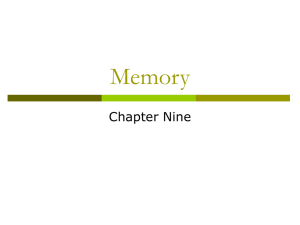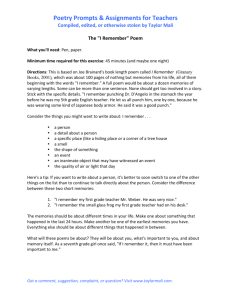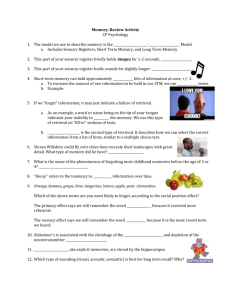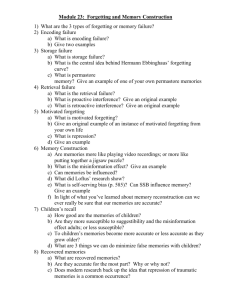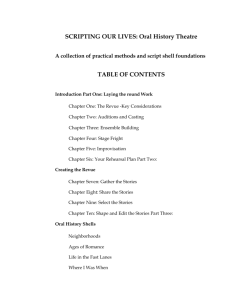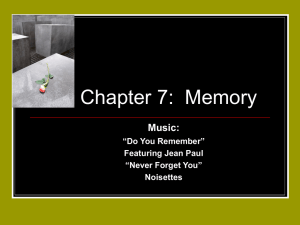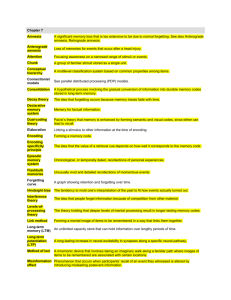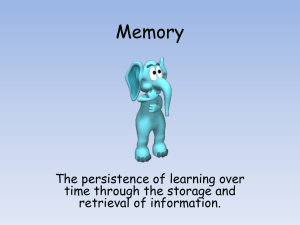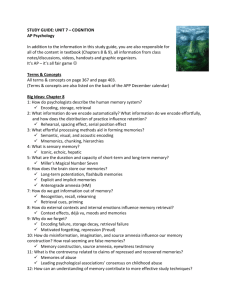Psychology 11: Memory Study Guide - Modules 18 & 19
advertisement
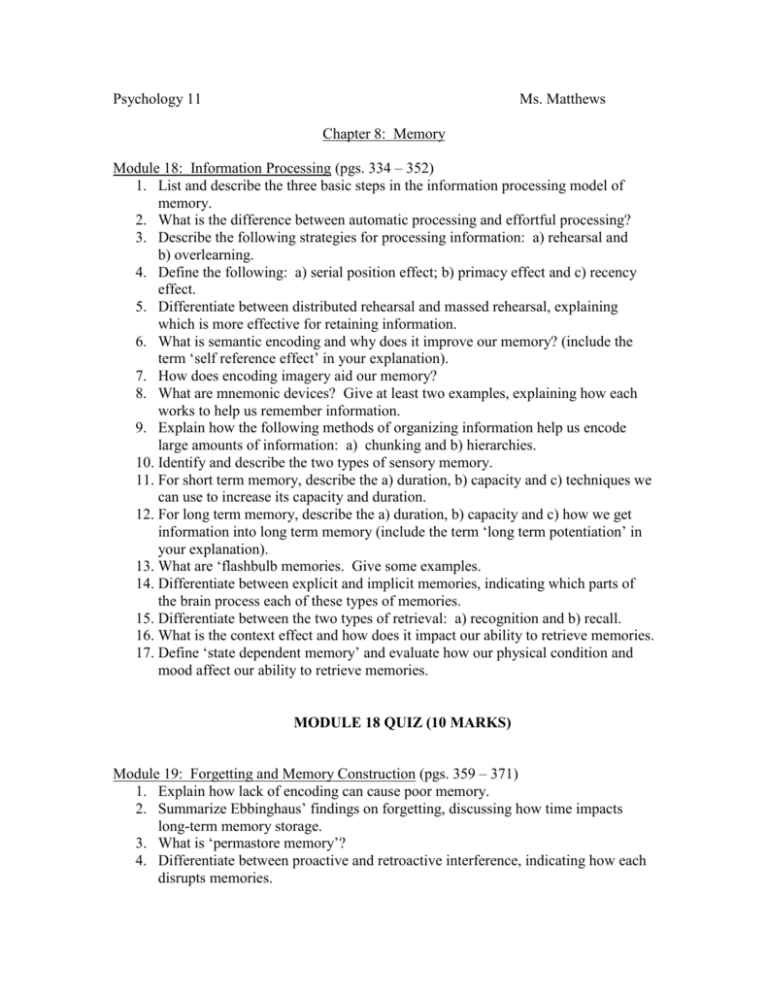
Psychology 11 Ms. Matthews Chapter 8: Memory Module 18: Information Processing (pgs. 334 – 352) 1. List and describe the three basic steps in the information processing model of memory. 2. What is the difference between automatic processing and effortful processing? 3. Describe the following strategies for processing information: a) rehearsal and b) overlearning. 4. Define the following: a) serial position effect; b) primacy effect and c) recency effect. 5. Differentiate between distributed rehearsal and massed rehearsal, explaining which is more effective for retaining information. 6. What is semantic encoding and why does it improve our memory? (include the term ‘self reference effect’ in your explanation). 7. How does encoding imagery aid our memory? 8. What are mnemonic devices? Give at least two examples, explaining how each works to help us remember information. 9. Explain how the following methods of organizing information help us encode large amounts of information: a) chunking and b) hierarchies. 10. Identify and describe the two types of sensory memory. 11. For short term memory, describe the a) duration, b) capacity and c) techniques we can use to increase its capacity and duration. 12. For long term memory, describe the a) duration, b) capacity and c) how we get information into long term memory (include the term ‘long term potentiation’ in your explanation). 13. What are ‘flashbulb memories. Give some examples. 14. Differentiate between explicit and implicit memories, indicating which parts of the brain process each of these types of memories. 15. Differentiate between the two types of retrieval: a) recognition and b) recall. 16. What is the context effect and how does it impact our ability to retrieve memories. 17. Define ‘state dependent memory’ and evaluate how our physical condition and mood affect our ability to retrieve memories. MODULE 18 QUIZ (10 MARKS) Module 19: Forgetting and Memory Construction (pgs. 359 – 371) 1. Explain how lack of encoding can cause poor memory. 2. Summarize Ebbinghaus’ findings on forgetting, discussing how time impacts long-term memory storage. 3. What is ‘permastore memory’? 4. Differentiate between proactive and retroactive interference, indicating how each disrupts memories. 5. What is repression? Explain how motivated forgetting helps to explain repressed memories. 6. Define ‘misinformation effect’ and explain how false information can be incorporated into what we remember. 7. What factors influence the accuracy of children’s recall of memories? What strategies can be used to increase the accuracy of their memories? 8. Why are psychologists cautious about claims of recovered memories? MODULE 19 QUIZ (10 MARKS) Chapter 8 Test (Date:_________________)

